Gardeners in Nags Head: Cultivating Beauty in the Outer Banks
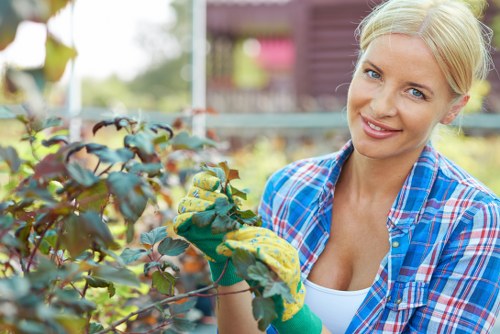
Nags Head, a charming town nestled in the heart of North Carolina's Outer Banks, is not only a paradise for beach lovers but also a haven for gardening enthusiasts. The unique coastal climate and rich soil create an ideal environment for a diverse range of plants, making gardening in Nags Head both rewarding and enjoyable.
Whether you're a seasoned gardener or just starting out, understanding the local conditions and selecting the right plants can make all the difference. This comprehensive guide explores the essentials of gardening in Nags Head, offering tips and insights to help you cultivate a vibrant and thriving garden.
From the best times to plant to the most resilient plant varieties, discover how to make the most of your gardening efforts in this picturesque coastal town.
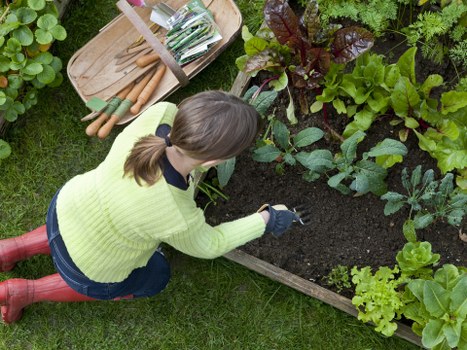
Why Nags Head is Perfect for Gardeners
Nags Head boasts a mild coastal climate, characterized by warm summers and mild winters, which extends the growing season and allows for a wide variety of plants to thrive. The area receives ample rainfall, reducing the need for constant watering and ensuring that plants receive the moisture they need to flourish.
The region's sandy soil, rich in minerals, provides excellent drainage, preventing root rot and other water-related issues. However, gardeners may need to amend the soil with organic matter to enhance nutrient content and improve water retention for certain plant types.
Additionally, the natural beauty of Nags Head, with its stunning sunrises and ocean breezes, creates a serene and inspiring environment for gardening. The community is supportive, with numerous local nurseries and gardening clubs available to offer advice and share resources.
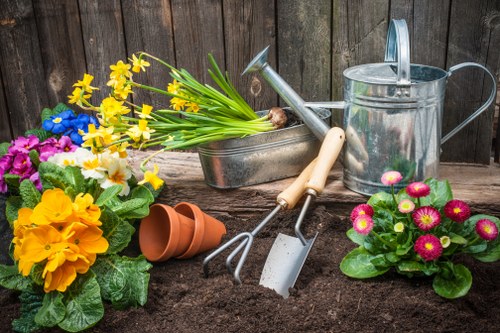
Understanding Nags Head Climate and Soil
Climate Overview
Nags Head enjoys a humid subtropical climate, which means hot, humid summers and mild winters. Average temperatures range from the low 40s in winter to the high 80s in summer, providing a long growing season suitable for a variety of plants.
Soil Composition
The soil in Nags Head is predominantly sandy, which offers excellent drainage but can sometimes lack essential nutrients. Gardeners often improve the soil by adding compost, peat moss, or other organic materials to enhance fertility and structure.
Sunlight and Wind Considerations
While Nags Head receives plenty of sunlight, the coastal winds can be strong, especially during certain seasons. Choosing wind-resistant plants and employing protective measures like windbreaks can help safeguard your garden from potential damage.
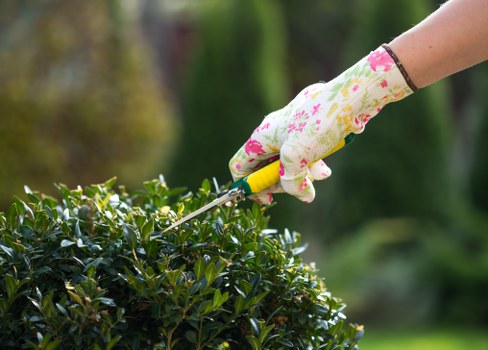
Choosing the Right Plants for Nags Head
Selecting plants that are well-suited to the local climate and soil is crucial for successful gardening in Nags Head. Here are some top choices:
- Native Plants: Plants such as beach plum, sea oats, and yaupon holly are adapted to the local conditions and require less maintenance.
- Flowering Plants: Lantana, marigolds, and hibiscus add vibrant colors and thrive in the sunny climate.
- Herbs and Vegetables: Basil, rosemary, tomatoes, and peppers are excellent choices for home gardens.
- Succulents: Aloe vera, agave, and sedum are resilient and require minimal water.
Incorporating a mix of these plants can create a diverse and resilient garden that withstands the coastal elements.
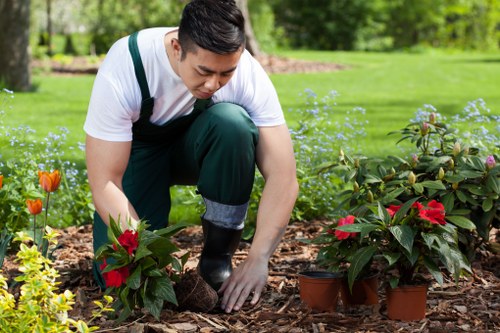
Gardening Tips for Nags Head
Soil Preparation
Enhance your sandy soil by adding organic matter such as compost or well-rotted manure. This improves fertility and water retention, providing a better foundation for your plants.
Watering Techniques
While the area receives ample rainfall, supplemental watering during dry spells is essential. Drip irrigation systems can provide consistent moisture without overwatering.
Pest Management
Common pests in Nags Head include aphids, mites, and beetles. Employ natural pest control methods like introducing beneficial insects, using neem oil, or planting pest-resistant varieties to keep your garden healthy.
Wind Protection
Protect your plants from strong coastal winds by installing windbreaks such as fences, hedges, or trellises. This not only shields your plants but also reduces moisture loss.
Seasonal Planting
Plan your planting schedule according to the seasons. Spring and fall are ideal for planting most vegetables and flowers, while summer may require heat-tolerant varieties.
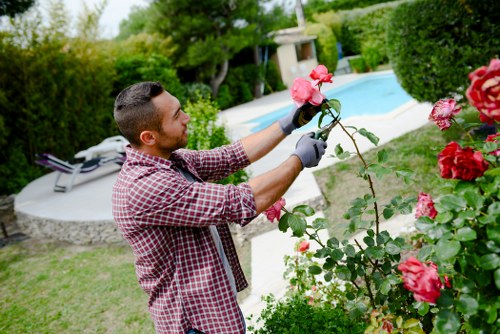
Local Gardening Resources in Nags Head
Nags Head offers a wealth of resources for gardeners, from local nurseries to community gardens. Here are some valuable resources to consider:
- Nags Head Garden Center: A premier nursery offering a wide selection of plants, gardening tools, and expert advice.
- Outer Banks Community Gardens: Participate in community gardening projects and connect with fellow gardening enthusiasts.
- Local Extension Services: Access gardening workshops, soil testing, and personalized guidance from agricultural experts.
- Gardening Clubs: Join local clubs to share tips, attend events, and gain inspiration for your garden.
Leveraging these resources can enhance your gardening experience and help you achieve a flourishing garden in Nags Head.
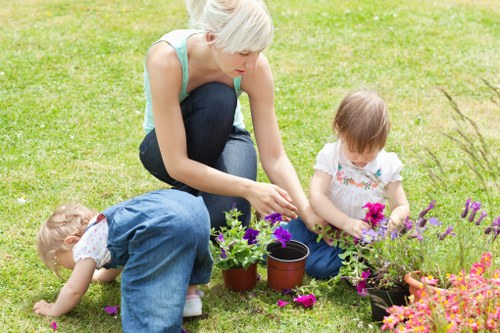
Nearby Areas for Gardeners in Nags Head
Exploring nearby areas can provide additional gardening opportunities and inspiration. Here are 12 nearby areas worth visiting:
- Kitty Hawk: Known for its historical sites and vibrant gardening community, Kitty Hawk offers numerous nurseries and garden centers.
- Duck: A picturesque town with beautiful gardens, parks, and walking trails perfect for horticultural inspiration.
- Manteo: Offers a variety of public gardens and botanical displays, ideal for gardeners seeking new ideas.
- Kill Devil Hills: Features community gardens and agricultural programs that support local gardeners.
- Roanoke Island: Home to the Roanoke Island Festival Park, which includes beautifully landscaped areas and educational gardens.
- Buxton: A tranquil area with private gardens and peaceful green spaces for relaxation and inspiration.
- Cape Hatteras: While primarily known for its beaches, Cape Hatteras also has unique coastal plantings and oceanfront gardens.
- Atlantic Beach: Offers public green spaces and community garden projects for local gardeners to engage with.
- Sea Level: A quiet community with local farms and gardens that focus on sustainable and organic practices.
- Frisco: Known for its beautiful marshlands and water gardens, providing unique planting opportunities.
- Corolla: Features upscale gardens and private nurseries specializing in coastal plants.
- Wanchese: A historical area with traditional gardens and a focus on native plant species.
Each of these nearby areas offers unique features and opportunities for gardeners, making them excellent destinations for expanding your gardening horizons.
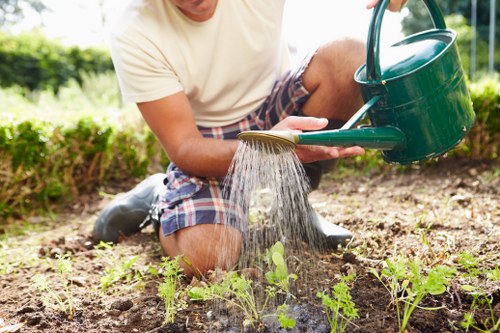
Seasonal Gardening in Nags Head
Spring Planting
Spring is the perfect time to plant a variety of flowers, vegetables, and shrubs. The milder temperatures and increased rainfall support healthy growth.
Summer Maintenance
During the hot summer months, focus on watering, weeding, and protecting plants from pests and excessive heat. Mulching can help retain soil moisture and regulate temperature.
Fall Harvest
Fall is ideal for harvesting vegetables, planting perennials, and preparing beds for winter. It's also a great time to plant trees and shrubs that will establish roots before the colder months.
Winter Care
While winters are mild, certain plants may require protection from frost. Use covers or move potted plants indoors to ensure they survive the colder temperatures.
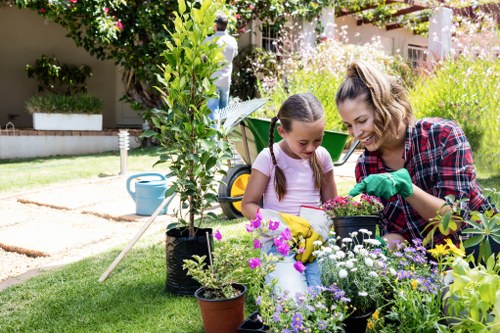
Community and Gardening Events in Nags Head
Nags Head fosters a strong sense of community among gardeners through various events and gatherings. Participating in these can enhance your gardening experience:
- Annual Garden Tours: Explore local gardens and gain inspiration from fellow gardeners' designs and plant choices.
- Workshops and Seminars: Attend educational sessions on topics like soil health, pest management, and sustainable gardening practices.
- Farmers Markets: Purchase locally grown plants, vegetables, and handmade gardening supplies.
- Plant Swaps: Exchange seeds, cuttings, and plants with other gardeners to expand your plant collection.
- Community Projects: Join group efforts to beautify public spaces, parks, and community gardens.
Engaging with the local gardening community can provide support, knowledge, and camaraderie, making your gardening journey in Nags Head even more fulfilling.
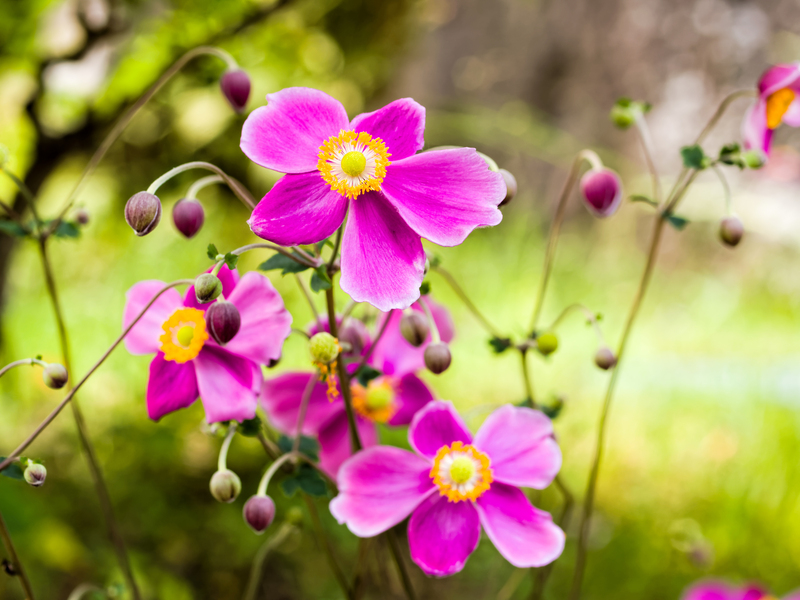
Sustainable Gardening Practices in Nags Head
Adopting sustainable gardening practices not only benefits your garden but also the environment. Here are some eco-friendly methods to consider:
- Composting: Recycle kitchen scraps and garden waste to create nutrient-rich compost for your soil.
- Rainwater Harvesting: Collect rainwater for irrigation, reducing reliance on municipal water sources.
- Organic Pest Control: Use natural remedies and beneficial insects to manage pests without harmful chemicals.
- Native Plants: Incorporate native species that require less water and are more resistant to local pests and diseases.
- Mulching: Apply mulch to conserve moisture, suppress weeds, and improve soil health.
Implementing these practices can lead to a healthier, more resilient garden while promoting environmental stewardship.
Gardening Challenges in Nags Head
While gardening in Nags Head offers many benefits, it's important to be aware of potential challenges:
- Salt Spray: Proximity to the ocean means plants may be exposed to salty air, which can cause leaf burn and stress.
- Wind: Strong coastal winds can damage plants and dry out soil quickly.
- Pests: The humid climate can attract various pests, requiring vigilant monitoring and management.
- Soil Nutrient Deficiency: Sandy soils may lack essential nutrients, necessitating regular soil amendments.
- Extreme Weather: Storms and hurricanes can pose significant risks to gardens, so having a disaster plan is crucial.
By being proactive and implementing strategies to mitigate these challenges, gardeners in Nags Head can maintain healthy and thriving gardens year-round.
Enhancing Your Nags Head Garden
To truly make your garden stand out, consider incorporating the following elements:
- Water Features: Adding a fountain or pond can create a soothing ambiance and attract beneficial wildlife.
- Pathways: Stone or gravel paths provide structure and guide visitors through your garden.
- Seating Areas: Benches or pergolas offer places to relax and enjoy your garden's beauty.
- Lighting: Solar-powered lights can highlight key features and extend the enjoyment of your garden into the evening.
- Decorative Elements: Incorporate sculptures, birdbaths, or garden art to add personality and charm.
These enhancements not only improve the aesthetic appeal of your garden but also create a more enjoyable and functional outdoor space.
Conclusion: Thriving as a Gardener in Nags Head
Gardening in Nags Head offers a unique and rewarding experience thanks to the area's favorable climate, supportive community, and beautiful natural surroundings. By understanding the local conditions, selecting appropriate plants, and adopting sustainable practices, you can cultivate a flourishing garden that enhances your home and contributes to the beauty of the Outer Banks.
Embrace the challenges and opportunities that come with coastal gardening, and enjoy the satisfaction of watching your plants thrive in this stunning seaside town.
Frequently Asked Questions
1. What are the best plants for a coastal garden in Nags Head?
Native plants like sea oats, beach plum, and yaupon holly are excellent choices. Additionally, flowering plants such as lantana, marigolds, and hibiscus thrive in the coastal climate.
2. How can I protect my garden from strong coastal winds?
Installing windbreaks like fences, hedges, or trellises can help shield your plants from strong winds. Choosing wind-resistant plant varieties is also beneficial.
3. What soil amendments are recommended for sandy soils in Nags Head?
Adding organic matter such as compost, peat moss, or well-rotted manure can improve soil fertility and water retention, making it more suitable for a wider range of plants.
4. When is the best time to plant vegetables in Nags Head?
Spring and fall are ideal for planting most vegetables. These seasons offer milder temperatures and optimal growing conditions for healthy plant development.
5. Are there local gardening clubs in Nags Head?
Yes, Nags Head has several gardening clubs and community gardens where enthusiasts can connect, share tips, and participate in group gardening activities.